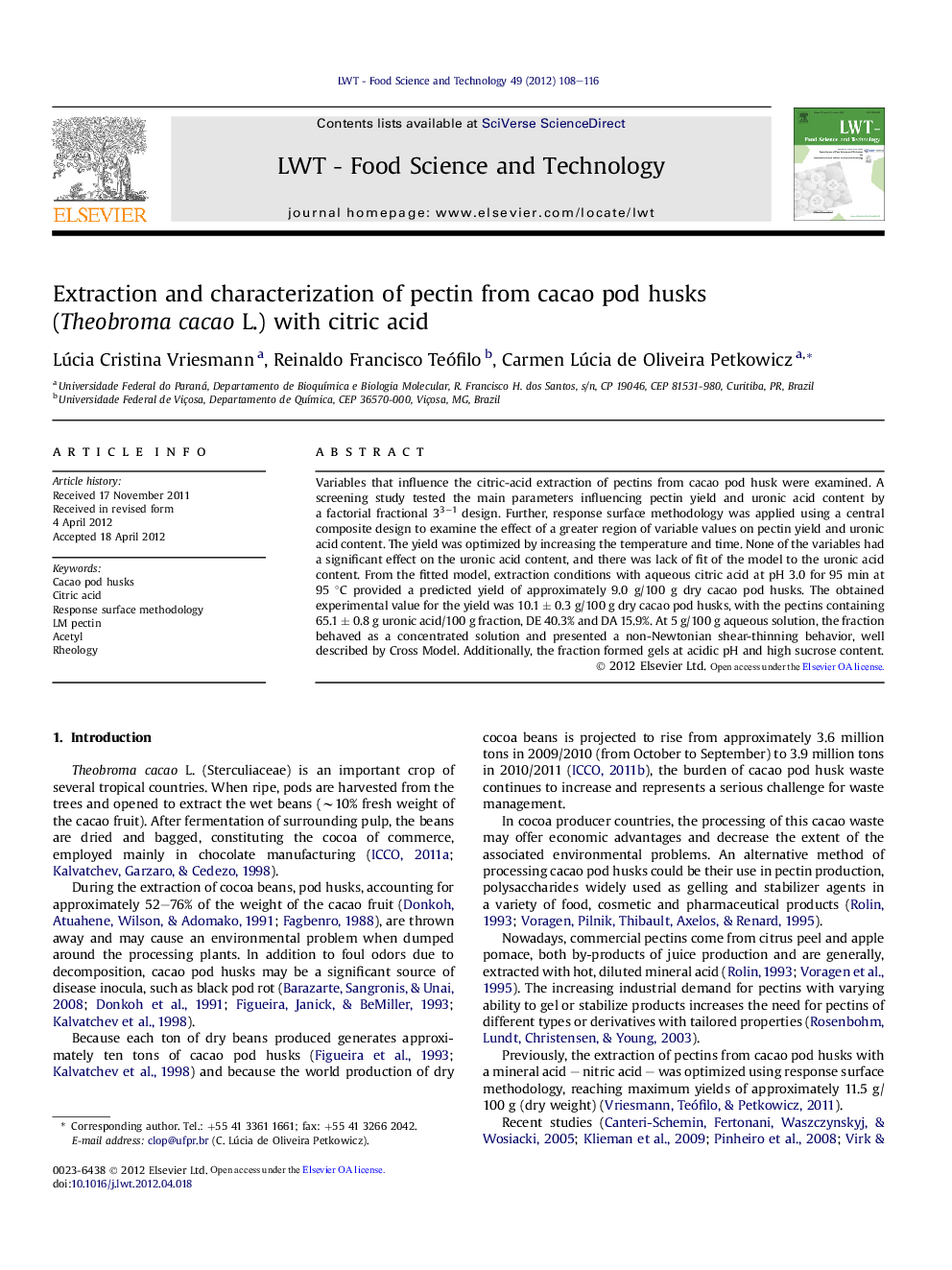| Article ID | Journal | Published Year | Pages | File Type |
|---|---|---|---|---|
| 6405128 | LWT - Food Science and Technology | 2012 | 9 Pages |
Variables that influence the citric-acid extraction of pectins from cacao pod husk were examined. A screening study tested the main parameters influencing pectin yield and uronic acid content by a factorial fractional 33â1 design. Further, response surface methodology was applied using a central composite design to examine the effect of a greater region of variable values on pectin yield and uronic acid content. The yield was optimized by increasing the temperature and time. None of the variables had a significant effect on the uronic acid content, and there was lack of fit of the model to the uronic acid content. From the fitted model, extraction conditions with aqueous citric acid at pH 3.0 for 95 min at 95 °C provided a predicted yield of approximately 9.0 g/100 g dry cacao pod husks. The obtained experimental value for the yield was 10.1 ± 0.3 g/100 g dry cacao pod husks, with the pectins containing 65.1 ± 0.8 g uronic acid/100 g fraction, DE 40.3% and DA 15.9%. At 5 g/100 g aqueous solution, the fraction behaved as a concentrated solution and presented a non-Newtonian shear-thinning behavior, well described by Cross Model. Additionally, the fraction formed gels at acidic pH and high sucrose content.
⺠The main waste product of cocoa production is cacao pod husk. ⺠Extractions of cacao pod husk with citric-acid afforded pectins. ⺠The yield of pectin depends on the extraction conditions. ⺠Conditions to maximize pectin yield are: citric acid, pH 3.0, 95 min at 95 °C. ⺠LM pectins highly acetylated were obtained in the satisfactory optimized condition.
